Mechanical keyboards are some of the most enjoyable peripherals you'll ever use. That's, of course, my opinion as someone who has used around a dozen of them so far. Many PC users will echo this sentiment, which might push you to finally get your first mechanical keyboard. Before you make the switch, however, it's worth knowing a few aspects of mechanical keyboards that could be less than ideal for newbies. If you're still hyped about getting your first mechanical keyboard, welcome aboard.
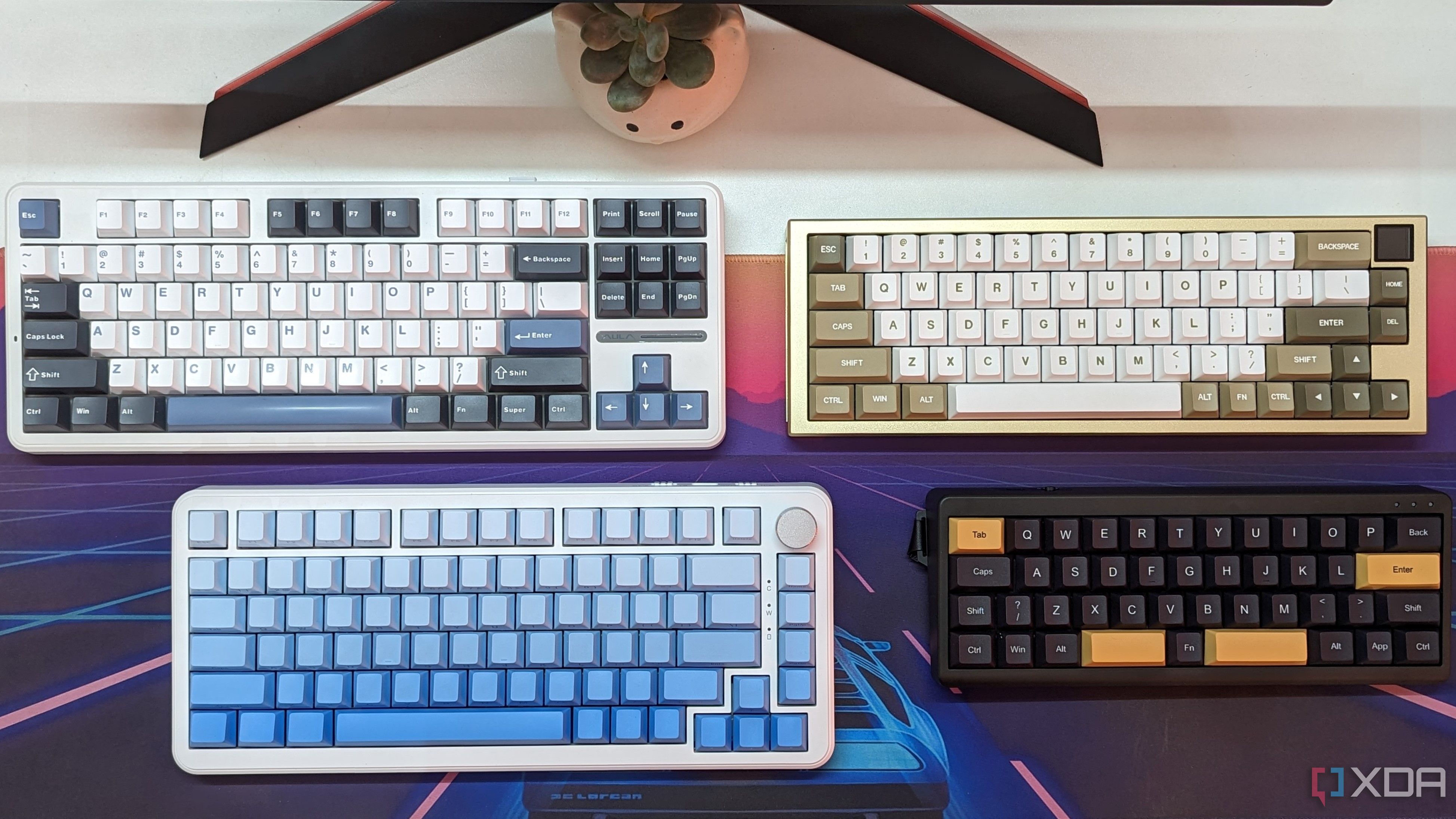
Related
5 signs my mechanical keyboard obsession is now out of hand
I got into mechanical keyboards late, but it's hard to get out now
5 You might find it uncomfortable
It's easy to get used to it, but you might not
While a superior typing experience is the hallmark of most mechanical keyboards, typing comfort is something that's less universal. The switches, keycaps, pre-installed foam, and case are behind the great sound and feel of mechanical keyboards, but if you're coming from a laptop or a regular low-profile keyboard, adjusting to a mechanical keyboard can be slightly difficult. Many people report tired wrists and fingers after long hours of typing on a mechanical keyboard.
Instead of loving your fancy new keyboard, you might start hating it, and it might even hurt your productivity till the time you get used to it. Personally, when I switched from a Cooler Master membrane keyboard to my first-ever mechanical keyboard, I never noticed any immediate negative effects on my wrist health. After a few years, I did move to a low-profile mechanical keyboard to make my 8-hour workdays more comfortable, but I haven't exactly abandoned my regular-sized boards.
You can try your hand at a budget mechanical keyboard so that your investment is on the lower side. If it's too painful a transition, you can go back to your membrane or low-profile keyboard.

Related
I ditched my mechanical keyboard for an ergonomic one, and I might never go back
I thought I'd hate the Logitech Wave Keys, and yet it has stayed on my desk for weeks.
4 It can become an expensive hobby
One you might not be able to get out of
Once you go clack, you never go back. This saying doesn't just hint at the inability to move back to membrane keyboards, but also says that you can become obsessed with mechanical keyboards once you adopt the hobby. What starts with a single board can quickly turn into a massive collection. And even if you get a great hot-swappable model that you can customize, the vast variety of switches, keycaps, stabilizers, plates, and more can quickly burden your wallet.
Many enthusiasts get into building a custom mechanical keyboard if they want a particular sound, feel, look, and weight for their keyboard. This can further balloon your costs, even if you're enjoying the process. I'm pointing this out because the endless variety and customization of mechanical keyboards is often cited as one of their major advantages, but actually benefiting from that doesn't always come cheap.
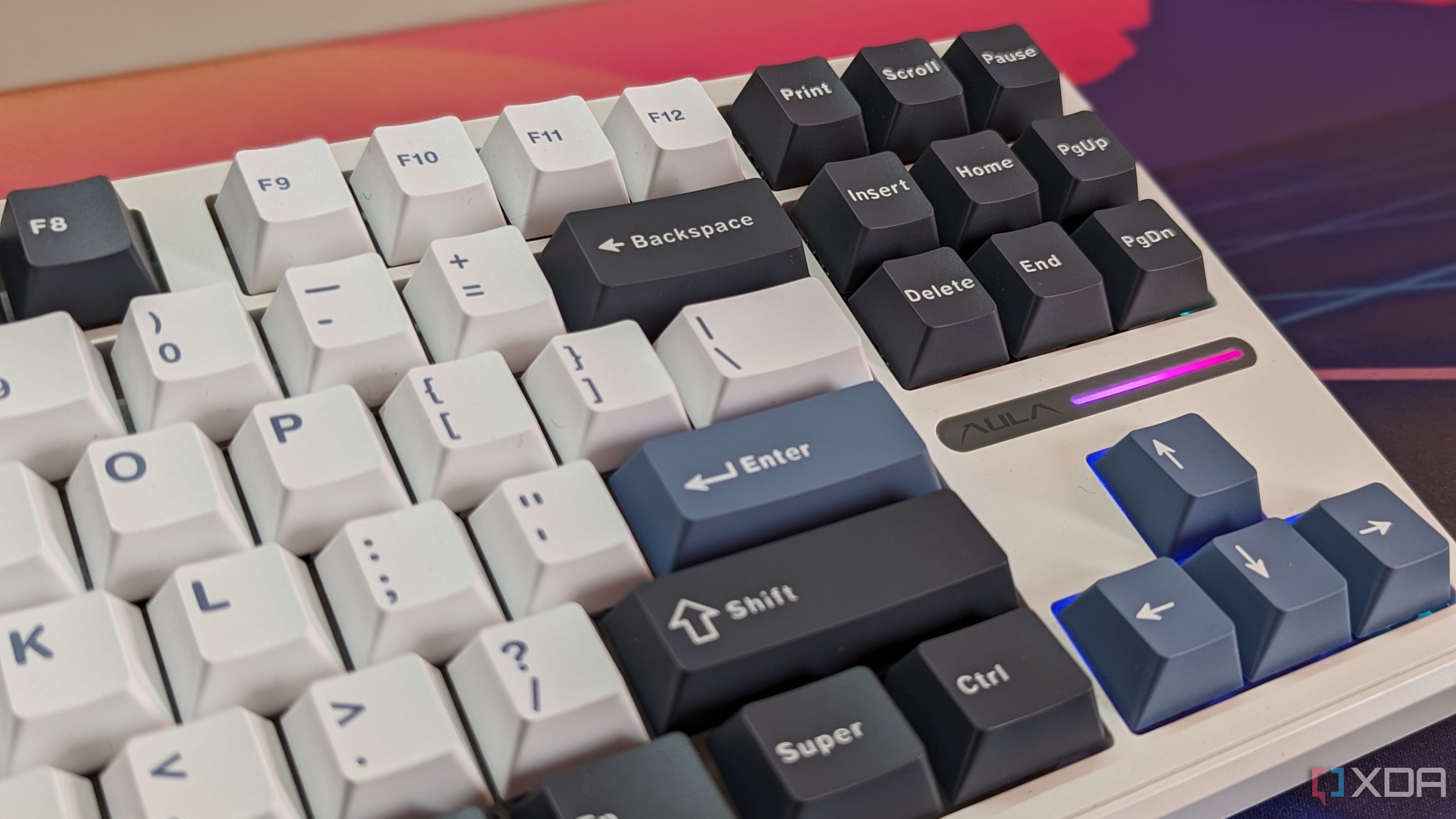
Related
5 reasons I prefer a pre-built mechanical keyboard over building my own
Pre-builts offer nearly everything you could need from your mechanical keyboard
3 Not every keyboard will sound great
Especially when you've used many of them
Almost every mechanical keyboard will sound lovely when you first switch from a regular keyboard, but pretty soon, you'll become picky about the sound and feel of your keyboards. Once you try enough models, you'll find what works for you — metal vs. wooden cases, regular vs. low-profile keycaps, linear vs. clicky vs. tactile switches, gasket mount vs. top mount, and much more. It can often take a long time and a lot of keyboards to find the perfect one for you.
While this is a natural part of this hobby, it can get exhausting and expensive for many users. You can do your research about form factors, switch types, and case materials all you want, but experiencing various models yourself is the only way to tell if you'd love or hate a mechanical keyboard. Mechanical keyboards, in general, are superior to membrane keyboards, but within the space, there are many levels of quality and the types of experience you can have.
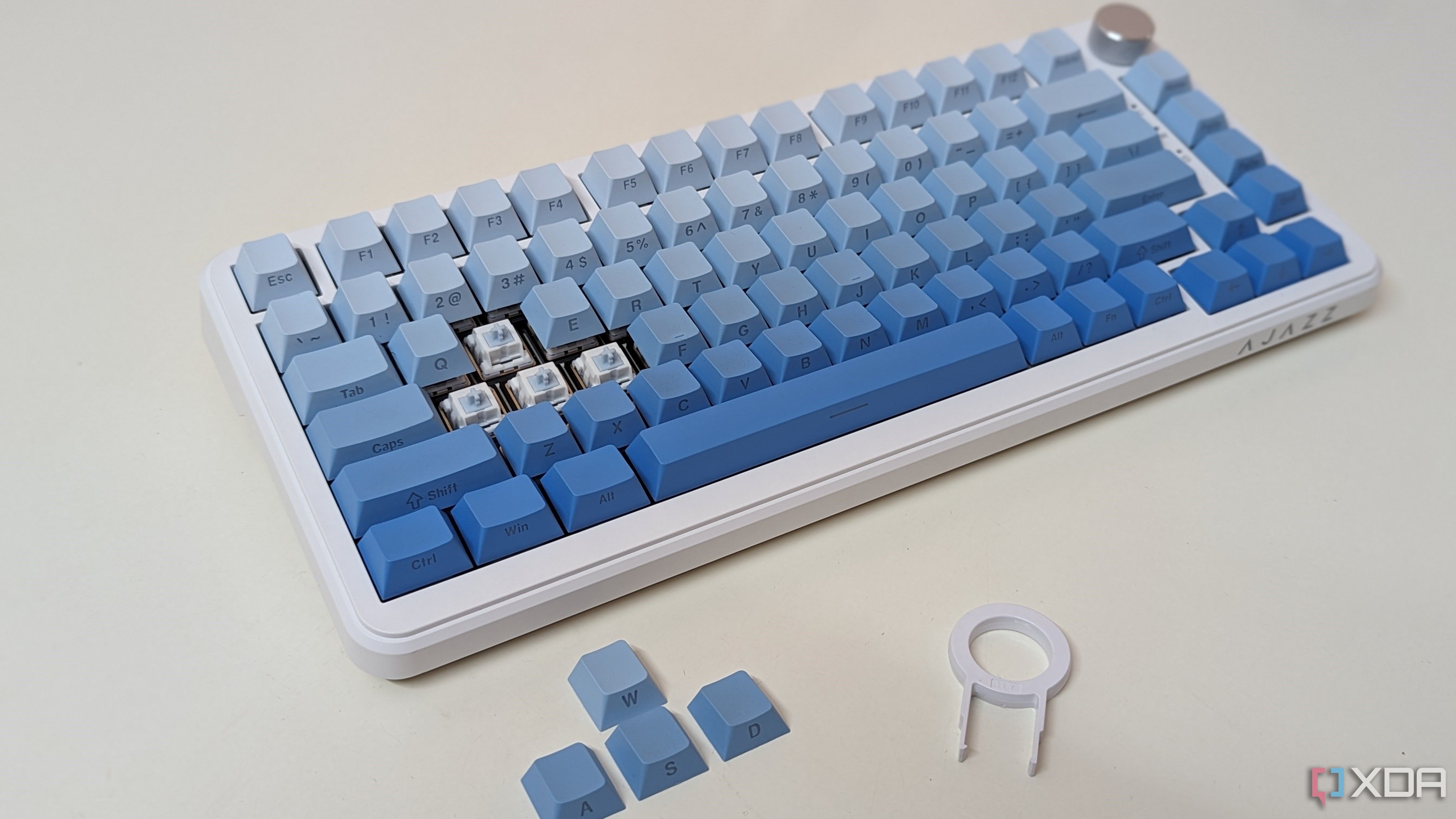
Related
5 questions to ask yourself before switching to a mechanical keyboard
Before you make the momentous move, asking these questions will ensure your first keyboard isn't a dud
2 Maintenance can get annoying
Be prepared to learn some DIY skills
On your previous membrane or laptop keyboard, cleaning might have meant wiping the keycaps when they get too smudgy. Removing the keycaps and cleaning the insides of your keyboard is also fairly simple on a membrane keyboard. On a mechanical keyboard, however, you have to deal with various components — keycaps, switches, stabilizers, and more. Cleaning a mechanical keyboard can be more time-consuming than cleaning your older keyboard.
You need to use a keycap remover to properly take the keycaps out before you can remove dust and hair from the inside. Using a cleaning liquid directly on the keyboard is more likely to damage your mechanical board than your membrane one. Besides cleaning, maintaining your mechanical keyboard can get relatively harder if you have to replace faulty switches, keycaps, or stabilizers. Many keyboards come with 4–5 replacement switches, but not all do.
Ignoring minor faults with your stabilizers and switches can cost you more when they grow into major problems; hence, it's crucial to tend to your mechanical keyboard as soon as you notice a difference in the typing experience.
1 Most mechanicals are heavy & bulky
Mechanical and lightweight rarely mix
Mechanical keyboards come in various form factors and materials, but overall, it's hard to find one that you can call "lightweight." Even if you find one that's portable enough, it would most likely be a low-profile or 65–75% model that would still weigh over 2 pounds. These compact form factors (and even smaller ones) will be lighter than regular mechanical keyboards, but they have their own constraints in terms of fewer keys and reduced functionality. That presents another learning curve.
So, if you're looking for do-it-all keyboards that work great in your dedicated home office as well as on your work trips, your options will be limited. The mechanical keyboards that sound and feel the best are usually on the heavier side, so choosing a lightweight keyboard will always come with some compromises to the typing experience.
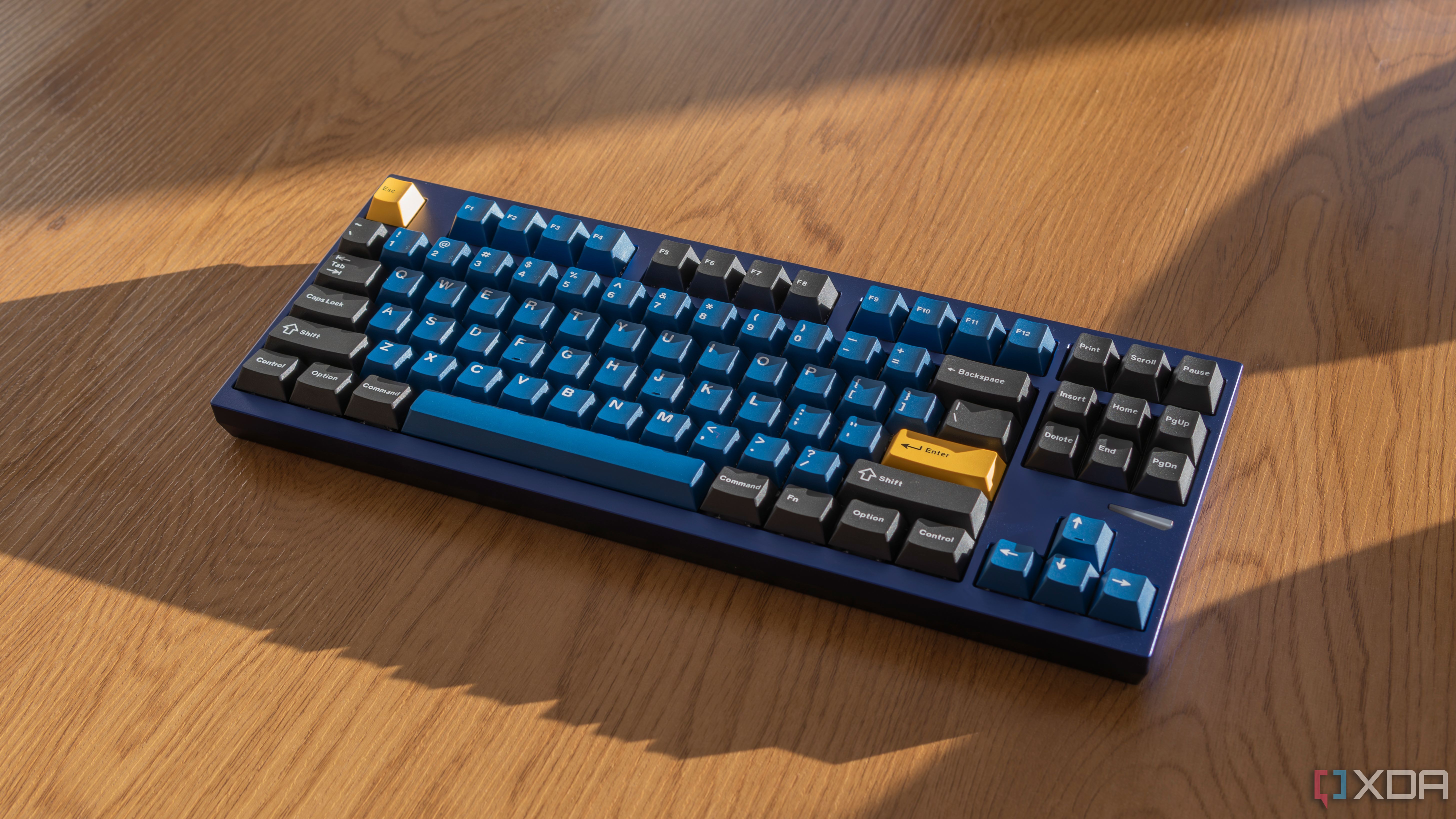
Related
5 reasons a mechanical keyboard might be the worst choice for you
A mechanical keyboard can be the worst option if you aren't the right target user for it
Mechanical keyboards have their quirks
Although mechanical keyboards are objectively better than membrane keyboards in terms of the typing experience and features, not everyone might be looking for that. If a keyboard is simply a tool for you to get your job done, you might be better off with a regular membrane keyboard. Even non-mechanical ergonomic keyboards work better for many professionals who don't care for the sound of mechanical keyboards. However, if you're convinced that you want to get into this hobby, the downsides shouldn't deter you.
.png)
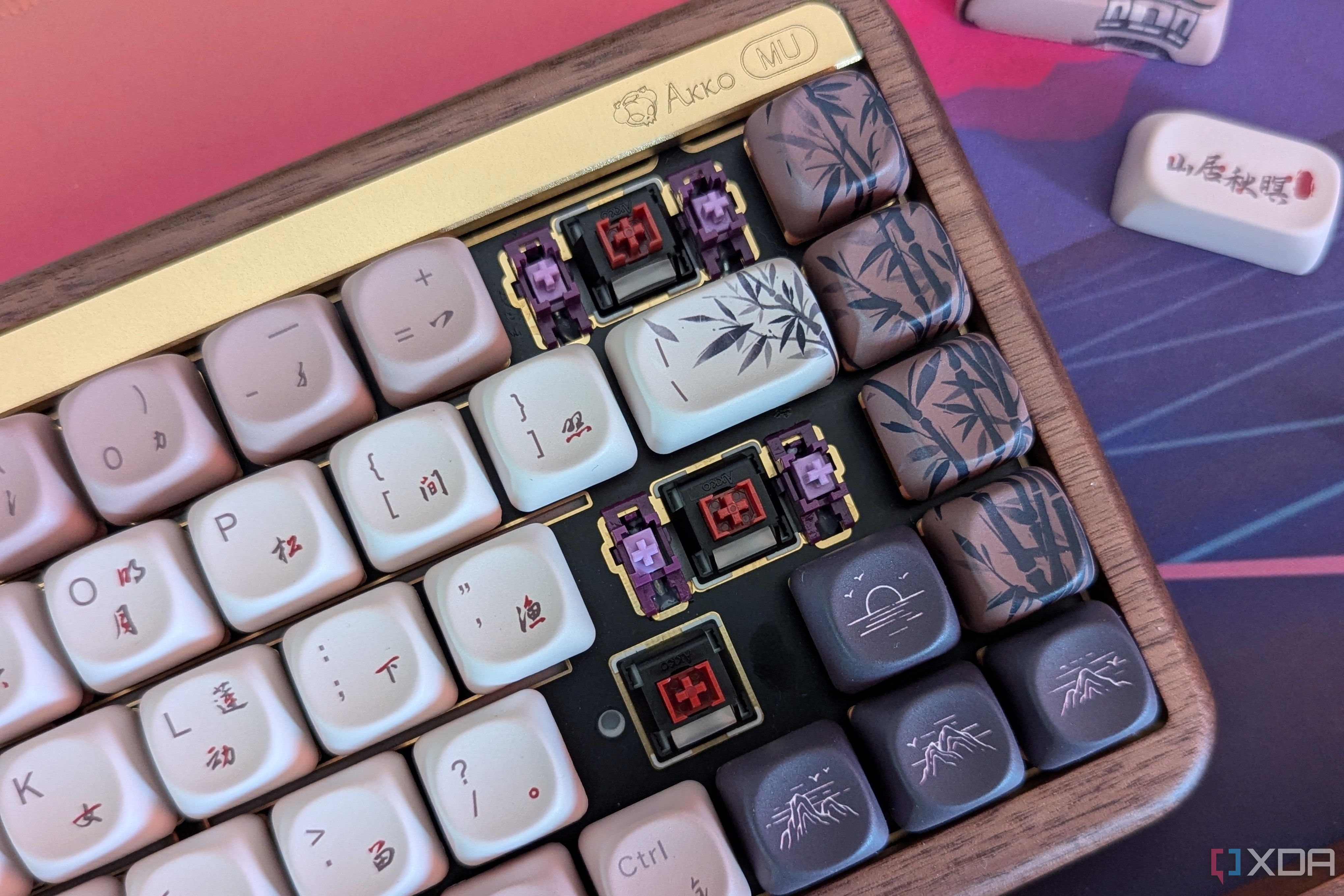



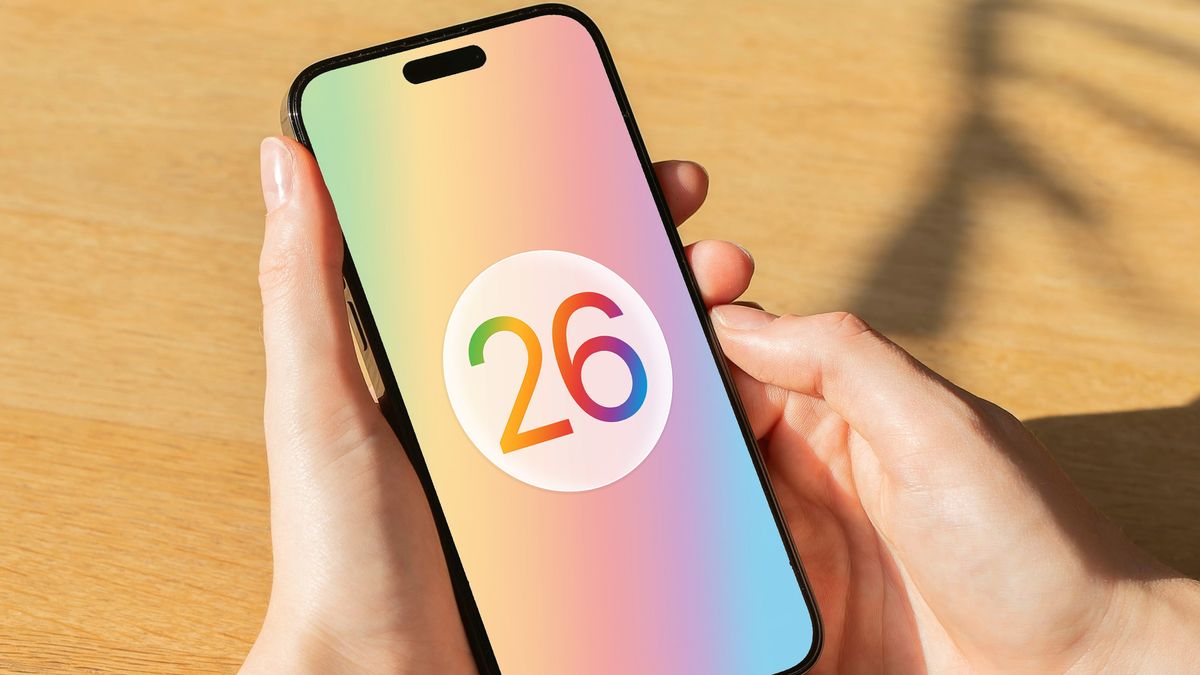







 English (US) ·
English (US) ·